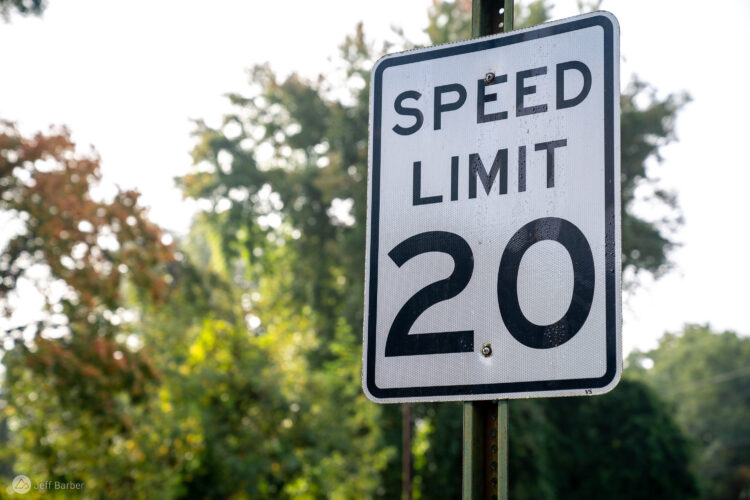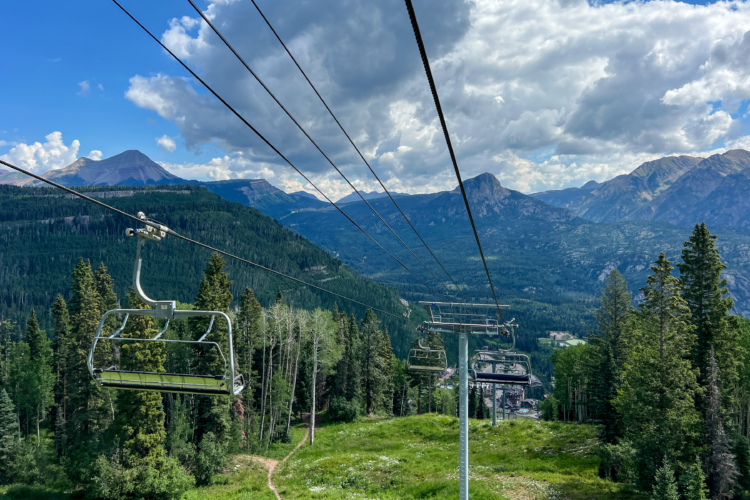
Michigan mountain bike advocates are leaping into action after a piece of legislation was introduced into the state senate which intends to expand equestrian rights on multi-use trails in the state, while potentially limiting mountain bike access in parts. State Bill 1191, introduced by Senator Jim Runestad (R) would amend an equestrian Right to Ride policy from 2010 and includes language which would not only make it “difficult for the DNR (Department of Natural Resources) to deny equestrian access to any existing non-motorized trail,” according to the Michigan Mountain Biking Association (MMBA), but also ban bicycle access from multi-use trails which are open to equestrians.
“It has the potential to create a lot of issues for mountain bikers throughout the state,” said Jason Jones, the advocacy director for the MMBA. Jones said the history of the new bill dates back to 2010 when a contentious Right to Ride bill was passed that last clarified equestrian access on state forest lands and trails. The bill established the rights of horseback riders on state land and created an equine trail council under the DNR to advise the Michigan Trails Advisory Council on equestrian-related matters. Since then, equestrians have had a bigger seat at the table compared to other user groups, said Jones.
The MMBA is taking issue with a few parts of the bill. Namely, where it states that if if a trail is signed for equestrian and hiking use and if it is not signed for bicycling, then “only equestrian use or equestrian use and hiking, respectively, are authorized on the trail.”
Also in the next section it states that if a trail is posted by the department for multi-use, i.e. hiking, biking, and equestrian use, then the department may authorize only equestrian and hiking use on the trail and the department “shall post at each trailhead of the trail, a sign or placard that provides notice that use of the trail by bicyclists is prohibited.”

Put more simply, in an action alert the MMBA said “In other words, it creates a scenario and mechanism where equestrians can claim a historical right to ride on a trail, force the DNR to give them access and then force the DNR to close the trail to cyclists.”
Jones explained the commonality of multi-use trails under the DNR in Michigan and the amendment could shift power from the DNR to equestrians on what constitutes an equestrian trail.
In an Equestrian Trail Subcommittee meeting in March, committee member and a conservative former prosecuting attorney for upper peninsula counties Karen Bahrman insisted that it is “not safe for horses and bikes to share trails” and that their proposed amendments to the Right to Ride act are “modest insofar as we’re only seeking to have bikes prohibited on designated (posted) horse trails — the number of trails affected is actually very small.” Bahrman also noted how difficult it can be to peacefully recreate on horseback with the chance encounter of mountain bikers.
Still, Jones said that the bill is a slippery slope because it does not define which trails the law would be applicable to and it could be interpreted more broadly. Considering a shrinking number of equestrians and a growing number of mountain bikers, the bill and the special equine subcommittee doesn’t make sense to him either.
“The more [equestrians groups] dwindle the more you have an extreme core that freaks out and they want to expand their access at the expense of cyclists.”
In total, the MMBA took issue with six points in the new bill:
- First, it has ambiguous language and parts of it can be interpreted in different ways.
- Though equestrian advocates have drafted a list of (seven) trails that they would like to prohibit bikes from, nothing in the text would limit prohibitions to just those trails.
- The bill doesn’t address unsigned trails.
- The bill reduces flexibility for the DNR and would make adopting new policies around trail use more challenging
- There is no advantage over the legislative approach over current DNR process
- This doesn’t address lack of representation for mountain bikers though Michigan’s trail committee structure codifies a group for equestrians and guarantees representation for off-road vehicles but not mountain bikers
Jones said the MMBA has been trying to “neuter” the bill by changing the language. With election season closing in, the bill isn’t expected to make progress again until January, but advocates still insist Michigan mountain bikers should bring their concerns to their local representatives, state senators, and the natural resources committee.
They have crafted a letter to the chairman of the Senate Committee on Natural Resources, Ed McBroom and Michigan residents can join in. MMBA urges residents to find their state representatives, state senators, and write to them as well in opposition of the amendment. Residents who live in 15th District which Senator Runestad represents are encouraged to email his office directly.











5 Comments
Oct 27, 2022
Oct 29, 2022
Oct 27, 2022
Oct 29, 2022
Oct 29, 2022
Why not elect mountainbikers to office in the future. They can declare the mountain bike as an endangered species and get our trails all special and stuff so our bikes are protected from losing habitat!
Seriously speaking, we as a people need to be very careful in electing the right people to offices that can help us keep and gain trail space.